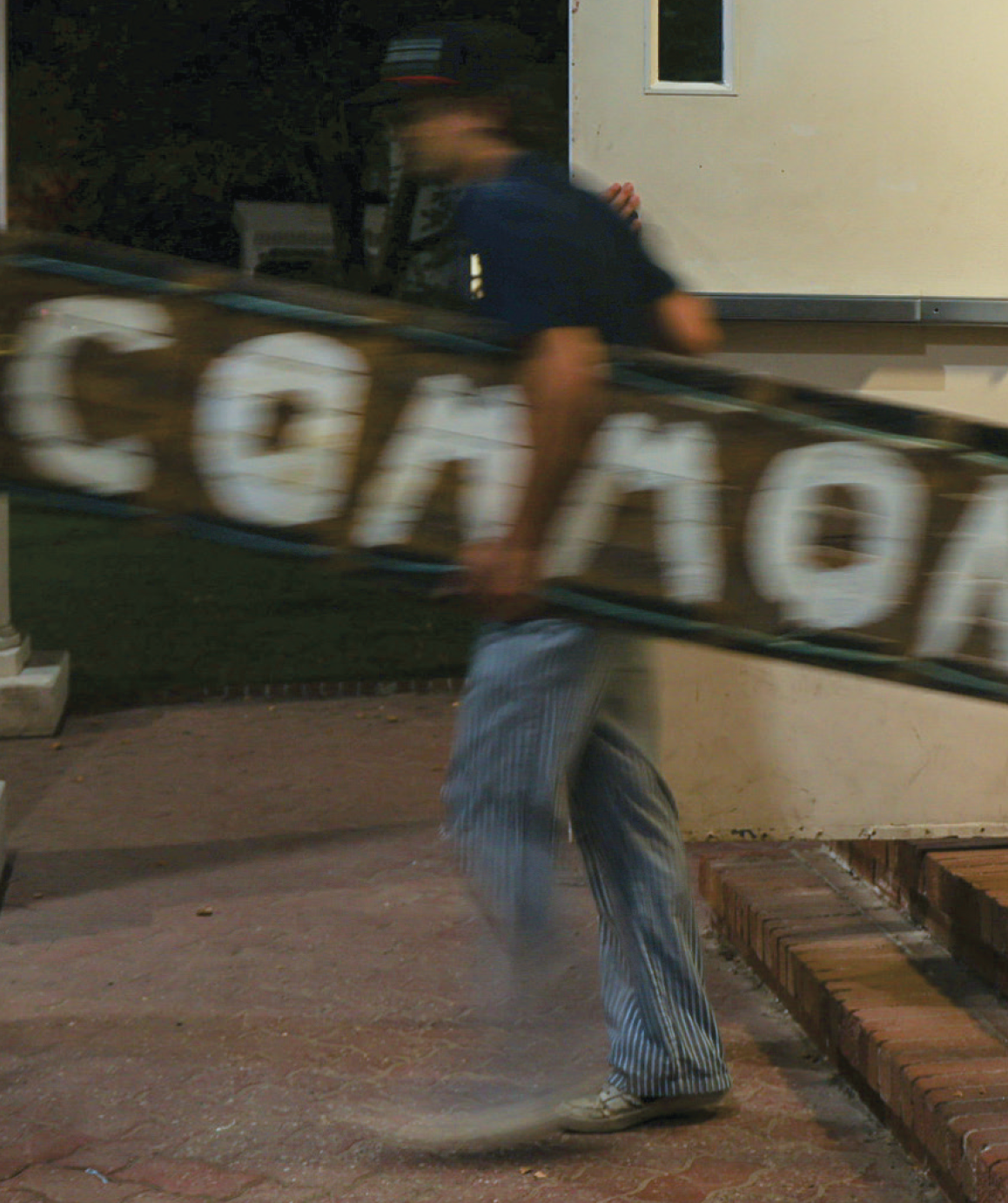Theme House… or Thief House
“They took our stove knobs, those bastards!”
Exclamations of a similar nature are common amongst members of theme houses.
An open window invites a cold breeze and unwanted thieves into the Java house. The campus knows they will only be home to stand guard against theft while running a concert.
This is one of the most common pranks within St. Lawrence University’s small theme house community. If you live in a theme house, you’ve likely had something stolen. Things go missing every weekend, and it may be a sign representing your house, your shower heads, or possibly a wall decoration that holds sentimental value.
“Did you get them yet?” says George over the music downstairs.
“No, only one will come off… the other one is stuck on” replies Ian.
The L.I.G.H.T house shower heads are proving difficult for the two thieves attempting to provide some payback. Just as the second shower head begins to come loose, a member of the Lighthouse bursts into the bathroom, which is decorated with inspirational quotes and magazine cutouts.
“Hey! What do you guys think you are doing in here,” a concerned lighthouse member shouts as they throw open the door.
The shower heads are immediately shoved into pockets as the thieves run out of the bathroom and out the front door of the Lighthouse. Payback is the only consequence in place for theft among theme houses.
Campus security, as well as the police, are never involved. Assistant Director of Campus Safety and Security Melanie Locy said they never receive calls regarding theft among theme houses. This is because theft in the community is treated like a game. However, it is taken quite seriously among the members. The constant rivalry is filled with emotion; people are prone to getting their feelings hurt, all while desiring revenge.
The members of the Outing Club sit in their common room among empty solo cups, a fallen disco ball and a discarded wig from the night before.
“We need to get them back,” grumbles Graham Bowen ’24. “They can’t keep getting away with this!”
A bare spot on the wall is usually covered by a colorful sign that promotes one thing with its neon lights; “Peace” usually flashes in red letters and is a symbol of the house.
“We need to prank them back,” Violet Schwartz ’25 chimes in.
The first thing that the Outing Club needed to figure out was who had stolen their beloved sign. The next step was to figure out the perfect form of revenge. If the plan is executed properly, passionate outing club members like Violet need to be quick and stealthy with their approach.
It is the middle of the Greenhouse formal, and the din of people is almost louder than the speaker. Shoulders bump together, people laugh, and all is well. A few members of a rival house take turns tiptoeing upstairs, screwdriver in hand. A screw is carefully backed out of the bathroom hinges with each pass of the upstairs hallway.
By the end of the night, the door is no longer hanging. Instead, it is propped against the wall. This prank was payback for the countless stolen items found in the Greenhouse the prior weekend.
Community members have resorted to stealing shower heads, the nobs from stoves and even personal soap and body wash from the showers. Why are personal items and objects that are used every day stolen? Why not steal something that may have more sentimental value but is not essential to everyday life?
Many houses have signature items that are targeted by other houses. A few examples include: Commons has an eight-footlong toboggan with its name written on it, the Outing Club has a precious inflatable bull, the Greenhouse has a painted wooden duck, which is very special to them.
These items are symbols of the houses in which they came from and are often heavily watched. Stealing one of these items takes great planning or good luck, and the house members it belongs to will not rest until it is returned.
“I hate stealing things as a prank,” said Autumn Nealis ’25. “It’s too far if it affects me every day.”
Many theme house members share this sentiment, tired of the relentless stealing. It is one thing to wake up to a sled or a sign missing but to wake up on Sunday morning with personal items gone and domestic necessities missing takes the fun out of the game for many.
What if the game is played differently? Is there a way to play the game where people’s everyday lives aren’t affected, and instead, the theft turns into something that brings the theme house community closer together?
The rules are simple: each house has a specific item that symbolizes them. This item is coveted by each house and protected at all costs. All houses must also be aware of the other house’s items. The goal of the game is to collect every item on campus.
This game would allow theme houses to continue the stealing game in a way that everyone would find fun, while helping bring the theme house community closer together.
Instead of creating meaningless conflict between groups over stolen shower heads, theme house members could all compete for a similar goal: to become the first house with all the items.



